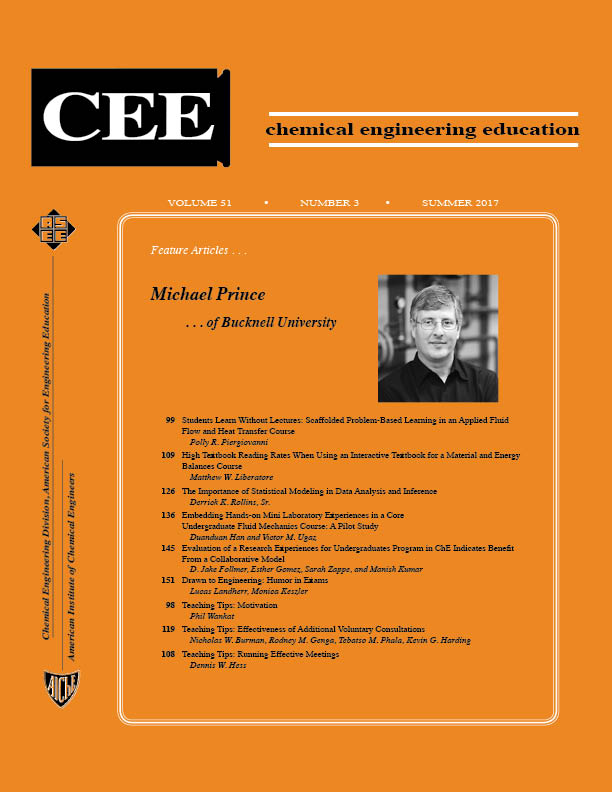High textbook reading rates when using an interactive textbook for a Material and Energy Balances course
Abstract
Textbooks are experiencing a 21st century makeover. The author has created a web-based electronic textbook, Material and Energy Balances zyBook, that records students’ interactions. Animations and question sets create interactive and scaffolded content. The interactive format is adopted successfully in other engineering disciplines and is now translated to chemical engineering. Decades of data quantified that less than 30% of university students complete textbook readings, while an average of 87% of the interactive web book was read across all 100 students during a recent semester. The students’ final course grades correlated with the average textbook reading scores. Further analysis finds statistically significant higher textbook reading scores for students earning A and B final course grades compared with C, D, and F final course grades as well as for female students compared to male students.


